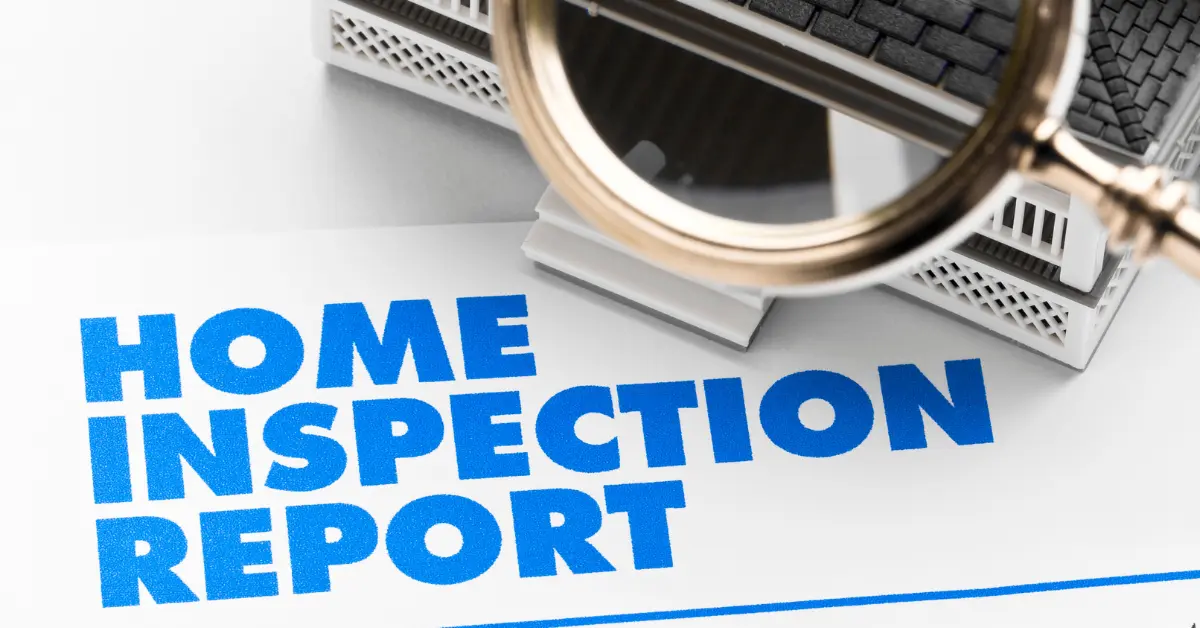Exploring Tenant Rights: Can a Tenant Get a Home Inspection?
Yes, tenants can get a home inspection. As a tenant, it is important to ensure that the property you are renting is in good condition and any issues are addressed promptly.
One way to do this is by getting a home inspection. A home inspection can identify any potential safety hazards, maintenance concerns or repairs that need to be made. However, it is important to communicate with your landlord first and obtain their permission before scheduling an inspection.
Additionally, be prepared to incur the cost of the inspection yourself as it is typically not covered by your landlord. By conducting a home inspection as a tenant, you can gain peace of mind and ensure that you’re living in a safe and well-maintained environment.

Understanding Tenant’S Rights To A Home Inspection
The Legal Right Of A Tenant To Request A Home Inspection
Tenants have a legal right to request a home inspection before renting a property. During the inspection, a professional inspector evaluates the property’s condition, identifies safety issues, and checks for any potential problems. Here are some key points:
- A tenant can request a home inspection before signing the lease agreement
- If the inspection reveals any defects or problems, the tenant can negotiate with the landlord to fix them
- The landlord bears the cost of the inspection only if they agree to it
Limitations And Restrictions On Tenant’S Rights Based On State Laws
Tenant’s rights to a home inspection may differ based on state laws. Some states may have restrictions on what tenants can inspect and how often they can inspect. Here are some more points to consider:
- Some states allow tenants to inspect for radon, mold, or lead-based paint.
- The landlord’s consent may be required before inspecting certain areas of the property.
- Some states may require the tenant to pay for the inspection or limit the number of inspections per year.
Different Types Of Inspections Tenants Can Request
Tenants can request different types of inspections, based on their needs and concerns. Some types of inspections include:
- General home inspection: A comprehensive inspection of the whole property, including heating, electrical, and plumbing systems.
- Mold inspection: Check for the presence of mold and its potential hazardous effects on health.
- Pest inspection: Detects any presence of pests such as mice, termites, or bed bugs.
- Radon inspection: Checks for the presence of radon gas, which can cause health hazards.
- Lead-based paint inspection: Detects the presence of lead-based paint, which can be hazardous to health.
A tenant’s right to a home inspection may differ based on state laws. However, tenants can request different types of inspections based on their needs and concerns. A home inspection can ensure a safe and healthy living environment for tenants and protect them from potential hazards.
Advantages And Benefits Of Tenant Initiated Inspections
Owning a home is a dream for many, but paying for a home inspection is not always cheap. In most cases, it is the responsibility of the seller or landlord to pay for the home inspection before the tenant moves in.
However, what happens if you do not trust or have second thoughts about the inspection? Can you, as a tenant, initiate an inspection? The answer is yes, you can, and it can be beneficial to do so. Let’s discuss the advantages and benefits of tenant-initiated inspections, and the steps to prepare for it.

Benefits Of Getting A Home Inspection Before Signing A Lease Agreement
Before signing a lease agreement, it is crucial to have the property inspected. A tenant-initiated inspection will help you understand the current state of the property and the potential issues that may arise in the future. Here are some of the benefits of getting a home inspection before signing a lease agreement:
- Identify issues: An inspection report can help you identify any existing issues with the property. This can include structural issues, mechanical issues, or any hazardous conditions.
- Negotiations: If the inspection report highlights any issues, you can use it as a bargaining chip to negotiate with the landlord for repairs or a reduced rental rate.
- Peace of mind: A clean inspection report will give you peace of mind about the property’s condition.
Advantages Of Tenant-Initiated Inspections During Tenancy
A tenant-initiated inspection during the tenancy period can be helpful if you suspect that there is a problem with the property. Here are some of the advantages of tenant-initiated inspections during tenancy:
- Early detection: An inspection can help detect issues early before they become major problems. This can save you time and money in the long run.
- Landlord responsibilities: The landlord has a responsibility to maintain the property to a habitable standard. An inspection report can help hold the landlord accountable for any repairs needed.
- Peace of mind: Just like before signing the lease, a clean inspection report can give you peace of mind that the property is in good condition.
How To Prepare For An Inspection And What To Expect
Before scheduling an inspection, it is important to prepare for it. Here are some tips on how to prepare for the inspection and what to expect:
- Schedule appropriately: Schedule the inspection at a time when you can be present, so you can ask any questions and discuss any concerns with the inspector.
- Communicate with the landlord: Let your landlord know of your plans to have an inspection and make sure they are aware of the time and date.
- Cleaning: Clean the property before the inspection, so the inspector can easily access all areas of the property.
- Expectations: During the inspection, the inspector will look at all aspects of the property, including the roof, plumbing, and electrical systems. They will take notes and provide a detailed report afterward.
A tenant-initiated inspection can be incredibly beneficial before and during a tenancy. Make sure you schedule appropriately, communicate with your landlord, and prepare the property for inspection.
Remember, a clean inspection report can give you peace of mind and potentially save you time and money in the long run.
Challenging A Landlord’S Refusal To An Inspection

Can A Tenant Get A Home Inspection
As a tenant, you have the right to secure and safe accommodation. If you believe there may be issues with your rented home, you have the right to request a home inspection.
However, some landlords may refuse your request. So, what are your options if your landlord denies a home inspection?
The Process For Seeking Legal Assistance To Challenge A Landlord’S Refusal
If the landlord denies your request for a home inspection, you have the right to challenge them legally. Here is the process for seeking legal assistance:
- Step 1: Review your lease agreement’s terms and conditions, including the landlord’s rights and your responsibilities.
- Step 2: Make an official request to your landlord for a home inspection.
- Step 3: If your landlord rejects your request, approach a lawyer to review your tenancy agreement and related legislation.
- Step 4: File a complaint with the relevant regulatory body if you believe your landlord is acting unfairly.
- Step 5: If all else fails, you may need to take legal action against your landlord.
Common Reasons Why Landlords Refuse Tenant-Initiated Inspections And How To Address Them
Some landlords may refuse tenants’ requests for home inspections for several reasons. Here are common reasons why landlords refuse tenant-initiated inspections and how to address them:
Reasons:
- The landlord may not want to incur additional expenses.
- The landlord may be wary of damage or other issues that could arise from the inspection.
- The landlord may want to protect their privacy.
Solutions:
- Offer to pay for the inspections if it will put the landlord at ease.
- Hire a reputable inspector and have them sign a liability waiver to allay the landlord’s concerns.
- Assure the landlord that you can respect their privacy and privacy rights.
Consequences Of Landlords Refusing A Tenant’S Request For A Home Inspection
If your landlord refuses your request for a home inspection, there may be consequences. Here are a few:
- Your safety and well-being may be compromised if there are hazards or defects that go unnoticed.
- Your landlord may have breached their obligations under your tenancy agreement.
- You may have a legal claim against your landlord for any harm, injury, or loss that results from their refusal to allow an inspection.
It’s important to know your rights as a tenant when it comes to a home inspection. Remember to follow the correct protocol, understand common reasons for refusal and how to address them, and be aware of the potential consequences of your landlord’s refusal.
By staying informed and diligent, you can protect your interests and secure your safety.
Frequently Asked Questions On Can A Tenant Get A Home Inspection?
Can A Tenant Request A Home Inspection?
Yes, a tenant can request a home inspection, but it’s up to the landlord to allow it.
Why Would A Tenant Request A Home Inspection?
A tenant may request a home inspection to identify any issues and ensure a safe living environment.
Who Pays For The Home Inspection In A Rental Property?
Typically, the tenant pays for the home inspection in a rental property unless otherwise specified in the lease.
Can A Tenant Be Denied A Home Inspection In A Rental Property?
Yes, a landlord can deny a tenant’s request for a home inspection if it violates the lease agreement or state laws.
Conclusion
Ultimately, the answer to whether a tenant can get a home inspection depends on the specific lease agreement and state laws in place. However, it is highly recommended for tenants to request a home inspection before signing any lease agreement to ensure their safety and well-being in the property.
A home inspection can reveal any potential hazards or structural issues in the property, allowing the tenant to make an informed decision about whether to rent or not. Additionally, tenants can use a home inspection report as leverage when negotiating lease terms or requesting repairs from their landlords.
A home inspection is a valuable resource for tenants in protecting their rights and ensuring a safe living environment, and tenants should not hesitate to request one if it is allowed under their lease agreement and state laws.
Source: https://www.doorloop.com/blog/rental-property-inspection